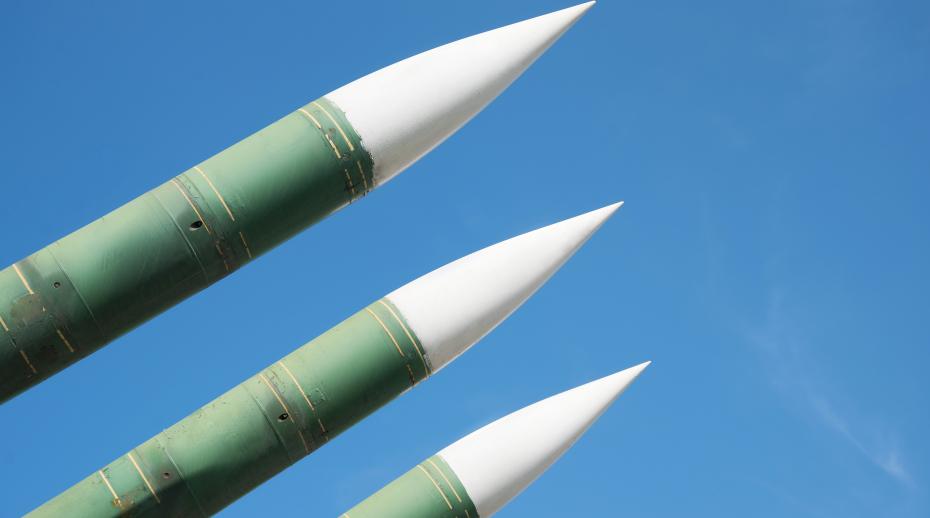
(Stockholm, 22 February 2023) Yesterday, in his State of the Nation address, Russian President Vladimir Putin announced that Russia would suspend its participation in New START, the last remaining nuclear arms control treaty between the world’s two nuclear superpowers: Russia and the United States.
Dan Smith, SIPRI Director, comments:
‘This is a disappointing, unimaginative but unsurprising step from which nobody benefits. One by one the pillars of nuclear arms control between Russia and the USA have been pulled down over the past two decades.
‘Although President Putin has not withdrawn Russia from the treaty, he has created uncertainty. This is probably deliberate, but it could also be dangerous in today’s atmosphere of heated animosity.
‘The New START treaty gave each of Russia and the USA the right to make 18 visits to each other’s weapons sites during the course of a year. Since the pandemic started those inspections have been called off. Part of the problem now is that Russia has claimed that the USA’s sanctions-based travel restrictions have made it hard for Russian inspectors to get to US sites; it has therefore refused to allow US inspectors to Russian sites. And last November Russia deferred sine die a meeting of the bilateral commission established under the treaty to handle such problems.
‘On the one hand you could say that nothing much has changed. This step was relatively predictable. Russia has confirmed that it does not intend to breach the treaty limits and that it will continue to notify the USA about any long-range missile launches. However, the uncertainty that this step creates may increase the difficulties in relations between Russia and the USA and their respective allies. It may also increase the already significant difficulties of preserving the nuclear Non-Proliferation Treaty, the world’s main barrier against more states getting nuclear weapons.’
For editors
The Treaty on Measures for the Further Reduction and Limitation of Strategic Offensive Arms (New START, Prague Treaty) was signed by Russia and the United States at Prague on 8 April 2010. It entered into force on 5 February 2011. The treaty obligates the parties—Russia and the USA—to each reduce their number of (a) deployed ICBMs, SLBMs and heavy bombers to 700; (b) warheads on deployed ICBMs and SLBMs and warheads counted for deployed heavy bombers to 1550; and (c) deployed and non-deployed ICBM launchers, SLBM launchers and heavy bombers to 800. The reductions were achieved by 5 February 2018, as required by the treaty.
Treaty and protocol texts: US Department of State.
About SIPRI’s work on nuclear arms control
Work on nuclear arms control is a central pillar of SIPRI’s research. SIPRI analyses the causes behind the current Russian–US nuclear arms control deadlock and examines concrete measures to mitigate or overcome them. Its research highlights the need to expand the arms control agenda to include emerging technologies and advanced non-nuclear weapons and the need to explore measures and mechanisms for involving other nuclear-armed states in relevant discussions.
Recent SIPRI work on nuclear arms control
- Wan, W., and Erästö, T., ‘Looking beyond the NPT: Next steps in arms control and disarmament’, SIPRI Commentary, 1 Sep. 2022.
- Erästö, T., ‘Revisiting “Minimal Nuclear Deterrence”: Laying the Ground for Multilateral Nuclear Disarmament’, SIPRI Insights on Peace and Security no. 2022/6, June 2022.
- Erästö, T., Smith, D. and Bauer, S., ‘The logic of avoiding nuclear war’, SIPRI Commentary, 1 Feb. 2022.
- Saalman, L., ‘Multidomain Deterrence and Strategic Stability in China’, SIPRI Insights on Peace and Security no. 2022/2, Jan. 2022.
- Erästö, T., Fedchenko, V., and Saalman, L., ‘Nuclear disarmament, arms control and non-proliferation’, SIPRI Yearbook 2022: Armaments, Disarmament and International Security (Oxford: Oxford University Press, 2022).
- Saalman, L., ‘Bilateral and multilateral nuclear arms control involving China, Russia and the United States’, SIPRI Yearbook 2022: Armaments, Disarmament and International Security (Oxford: Oxford University Press, 2022).
- Kristensen, H. M., and Korda, M., ‘World nuclear forces’, SIPRI Yearbook 2022: Armaments, Disarmament and International Security (Oxford: Oxford University Press, 2022).
Media contacts
For information and interview requests contact Alexandra Manolache, SIPRI Media and Communications Officer, (alexandra.manolache@sipri.org, +46 766 286 133) or Stephanie Blenckner, SIPRI Communications Director, (blenckner@sipri.org, +46 8 655 97 47).